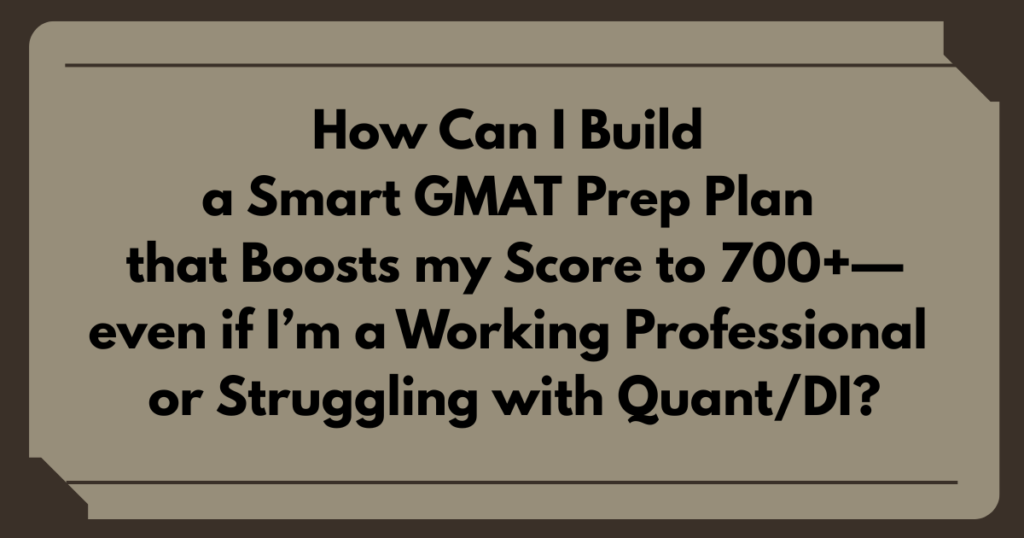How to Build a Smart GMAT Prep Plan for a 700+ Score as a Working Professional

What is the Importance of The GMAT Exam?
Particularly for an MBA, the Graduate Management Admission Test (GMAT) is a vital standardized test for students seeking advanced business education.
It is valuable in that it is a dependable indicator of a candidate’s preparation in academics for demanding business school courses.
The GMAT exam considers vital abilities such as analytical writing, quantitative reasoning, verbal ability, and integrated reasoning—skills absolutely essential for success in business and management and accepted by more than 2,000 institutions worldwide.
The impact of the GMAT exam on the admissions process is one of its major significance.
Particularly when supported by a respectable academic history and career experience, a strong GMAT score can really raise one’s odds of acceptance into challenging courses.
It offers a standardized criterion that helps schools to fairly evaluate candidates from many educational and cultural backgrounds.
Moreover used by institutions for scholarship and funding decisions is the GMAT score. A high score not only helps an application but also might qualify one for financial assistance, therefore increasing the availability of a business school.
Preparing for the GMAT exam also assists applicants in acquiring time management, problem-solving, and critical thinking abilities apart from their admissions. In practical business situations as well as academic contexts, these skills translate.
How can I build a smart GMAT prep plan that boosts my score to 700+—even if I’m a working professional or struggling with Quant/DI?
Even if you are a working professional or having difficulty with Quant and Data Interpretation, you can still score 700+.
Building a wise, customized prep plan that stresses consistency, strategy, and concentrated improvement is really what’s important.
- Set Clear Goals and Timeline: Begin by establishing a practical goal date of three to six years hence, depending on your current level. Officially test yourself to ascertain your starting score and areas of weakness, especially in Quant and DI.
- Create a Weekly Study Schedule: Working professionals should strive to spend 1–2 concentrated hours daily and 3–4 hours on weekends. One should have consistency rather than stuff. Set aside certain times in your schedule to study so that you may develop a routine.
- Strengthen Core Concepts: Especially in Quant, dedicate the first 4–6 weeks to establishing robust groundwork. Utilize GMAT Official Guide, Manhattan Prep, or Target Test Prep (excellent for Quant). Give attention to algebra, arithmetic, number properties, and word problems. Use Integrated Reasoning questions and tools such as GMAT Club quizzes to help you develop improved graph and table interpretation abilities for DI.
- Apply Smart Strategies: Begin timed exercises once you have your fundamentals in order. Study quick methods, approximating approaches, and exclusion procedures. Begin working on 700+ level problems to build stamina and challenge your brain.
- Take Regular Mock Tests: Schedule complete test sessions every 2 to 3 weeks and thoroughly review each one. Review every mistake, compile an error log to find trends, and not only track scores.
- Stay Flexible and Motivated: Change your plan as required depending on progress. Include verbal and IR workouts to keep balance and prevent burnout. By establishing small objectives and celebrating development, you can help your inspiration to stay on top.
Rely on getting the finest GMAT guidance available in India by MBA Wizards through their outstanding preparation program specifically designed for eager candidates to achieve flawless GMAT scores. Get a thorough online course preview by signing up right away on the website.
- Tags: Smart GMAT Prep Plan
